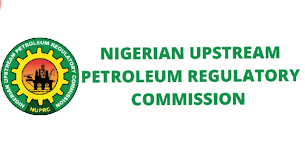The Nigerian Upstream Petroleum Regulatory Commission (NUPRC) has generated a total of N28.11 billion in miscellaneous oil revenue between January and May 2025. This amount, which was fully remitted to the federal government, came mainly from licensing fees, permit approvals, and renewal charges within the oil sector.
The figure is part of a broader revenue stream from the commission as it implements tighter regulations and renews expiring oil licences. Over 40 Petroleum Prospecting Licence (PPL) holders are currently rushing to renew their exploration rights ahead of the June 27, 2025 expiration date.
The revenue data, obtained from the commission’s monthly reports to the Federation Accounts Allocation Committee (FAAC), showed that the highest monthly collection was recorded in April with N10.04 billion. This was followed by N9.19 billion in January, N3.64 billion in February, N2.18 billion in March, and N3.04 billion in May.
According to NUPRC, the miscellaneous oil revenue includes income from approvals for various types of oil industry licences and permits. However, the commission did not specify the exact contribution of each category.
A major factor behind the revenue surge is the new licensing and renewal policy introduced by the commission. Under the revised rules, oil companies are now required to pay a $5,000 processing fee and submit 13 mandatory documents before they can extend their existing licences.
This development follows the 2020 Marginal Field Bid Round, which saw several licences issued in 2022. These licences are now set to expire on June 27, 2025. In a recent letter titled Notification of PPL Tenure Expiration And Conditions For Extension, the Chief Executive of NUPRC, Gbenga Komolafe, reminded licensees of their obligations.
He noted that based on Section 77 of the Petroleum Industry Act (PIA) 2021 and the 2022 Regulations on Licence Extension, holders of PPLs must apply for an optional extension of either three or five years. However, this extension is contingent on their performance, including the completion of their Minimum Work Programme and fulfilment of financial commitments attached to the original licence award.
“If you want an extension, your company must show it has met the required work and financial commitments under the PIA,” Komolafe wrote in the letter.
In total, the NUPRC contributed significantly to the federal purse during the period under review. Between January and May 2025, total revenue from the upstream petroleum sector exceeded N3 trillion. This included oil royalties, gas flaring penalties, concession rentals, and miscellaneous oil revenue.
Oil royalties made up the bulk of the income, contributing N2.56 trillion. Gas flaring penalties brought in N201 billion, while concession rentals accounted for N29.1 billion, and miscellaneous oil income like licence fees added N28.1 billion.
The NUPRC has said it aims to generate a total of N15 trillion in oil revenue by the end of 2025. However, its impressive performance so far highlights both opportunities and concerns in the sector.
For instance, gas flaring—despite Nigeria’s commitment to end routine flaring by 2030—remains a significant income source. Between January and May 2025, the commission collected N36.6 billion in January, N36.5 billion in February, N55.1 billion in March, N30.4 billion in April, and N42.9 billion in May from gas flaring penalties. These figures suggest that flaring continues at a high rate, raising environmental concerns.
Industry watchers note that while the revenue is commendable, it also reflects Nigeria’s continued reliance on fossil fuel activities and regulatory fines for polluting practices like flaring. This raises questions about the sincerity of the country’s energy transition plans and commitment to environmental sustainability.
Nevertheless, the Federal Government has expressed satisfaction with the performance of the NUPRC so far. With more companies expected to apply for licence renewal, the commission is poised to collect even more in the coming months, provided it maintains strict compliance standards.
